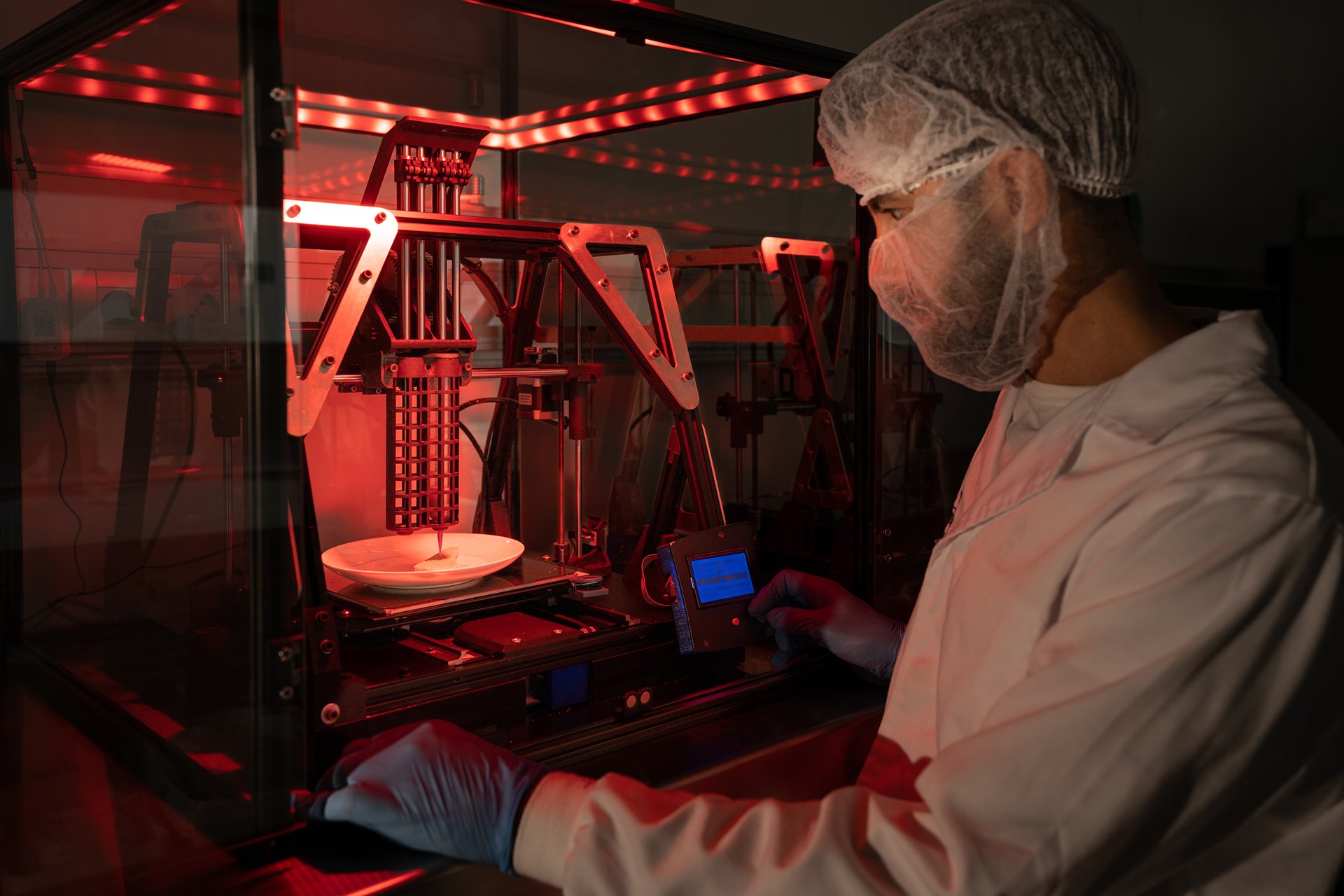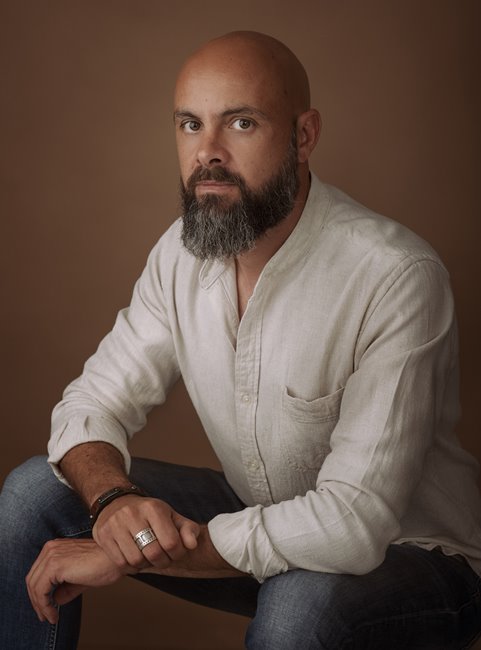Francesco Riccobono operates a 3-D printing system in Barcelona, Spain, to produce a meat substitute that mimics the texture and appearance of a real steak. The printed product comprises pea protein, beetroot juice, and other plant-based ingredients. Such substitutes can play a role in reducing the large environmental footprint left by farming cattle and other livestock.
This project documents different technologies that offer possible routes of transition to a net-zero economy. The photographer visited innovative facilities across Europe, from Iceland to Italy, from 2020 to 2022.
Human-induced climate change is the largest, most pervasive threat to the natural environment and society that the world has ever experienced, according to the UN Human Rights Office, OHCHR. This prompted the European Union to establish targets to cut greenhouse emissions by at least 55 percent by 2030 and to reduce them to net-zero by 2050. European companies seeking ways to achieve these goals are exploring renewable energies, new technologies for food production, and the circular economy as potential ways forward.

